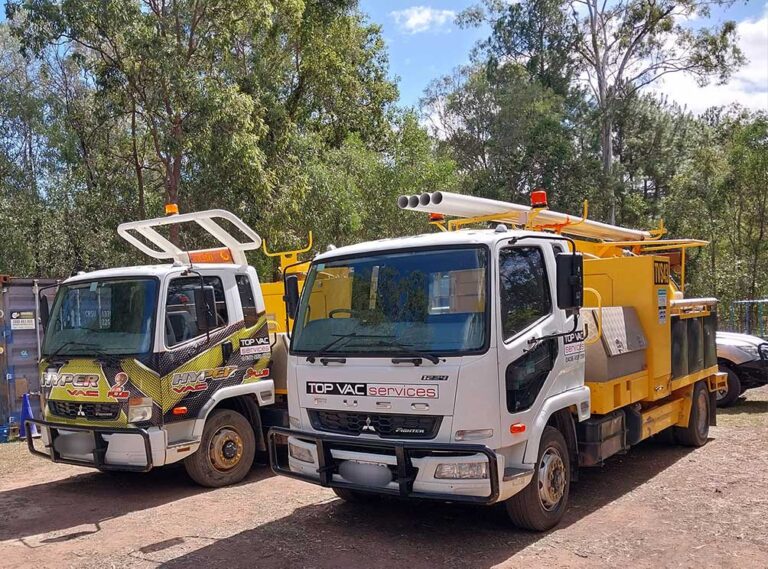Vac Truck Hire
Vac Truck Hire
Top Vac Services is a QLD based business offering specialist Vacuum Excavation, providing an alternative to mechanical excavation and waste removal. Top Vac Services proudly offers its services all over South East Queensland and Northern NSW.
Vacuum excavation, also known as suction excavation, is a non-destructive digging method that uses high-powered vacuum technology to excavate soil and debris.
With our fleet of 3000L & 6000L trucks and our team of experienced operators, Top Vac Services, we can assist with all your vacuum excavation needs.

Why hire a Vac Truck from us?
Here are 5 important advantages of hiring our Vac trucks at Top Vac Services:
- Is cost-effective and time-saving
- Is efficient and accurate
- Minimises risk of damage to underground services
- Significantly reduces safety risks
- Has minimal environmental impact
- Minimises damage to site
What our clients are saying about us

CEO Company X
Outstanding and Reliable Service Every Time
We have been using Top Vac Services for our contracting needs for some time now, and we couldn't be more impressed with the level of service we consistently receive. Every interaction with their team, from the initial call to the completion of the job, is seamless and professional.
The office staff are a pleasure to deal with; they are always friendly, efficient, and incredibly helpful. Scheduling and communication are handled with the utmost professionalism, making the entire process smooth and straightforward.
Furthermore, the operators in the field are a true credit to the company. They are highly skilled, punctual, and carry out their work with precision and a professional attitude. Their reliability and dedication to doing a great job are evident in the quality of their work.
Overall, Top Vac Services has proven to be an invaluable partner. They are a reliable, professional, and accommodating company that is always willing to go the extra mile to assist. We highly recommend them to anyone in need of their services.

Manager Company Z
Outstanding and Reliable Service Every Time
We have been using Top Vac Services for our contracting needs for some time now, and we couldn't be more impressed with the level of service we consistently receive. Every interaction with their team, from the initial call to the completion of the job, is seamless and professional.
The office staff are a pleasure to deal with; they are always friendly, efficient, and incredibly helpful. Scheduling and communication are handled with the utmost professionalism, making the entire process smooth and straightforward.
Furthermore, the operators in the field are a true credit to the company. They are highly skilled, punctual, and carry out their work with precision and a professional attitude. Their reliability and dedication to doing a great job are evident in the quality of their work.
Overall, Top Vac Services has proven to be an invaluable partner. They are a reliable, professional, and accommodating company that is always willing to go the extra mile to assist. We highly recommend them to anyone in need of their services.
